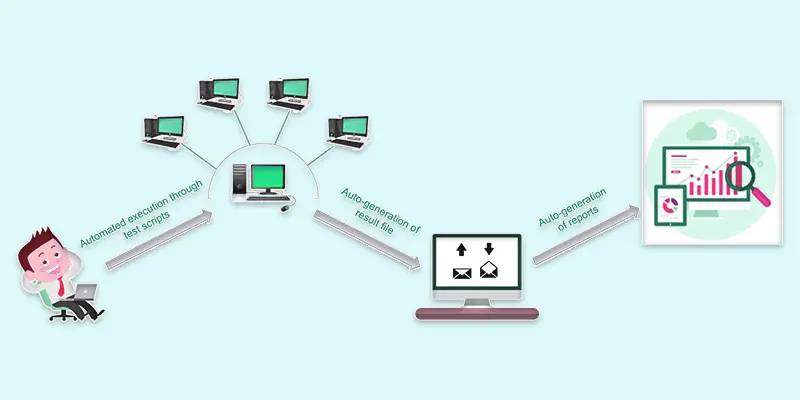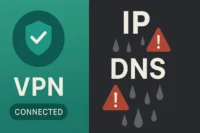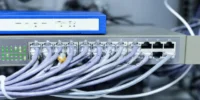Basics of Computer Networks Interview Questions Explained
Published: 18 Jun 2025
Common Computer Network Interview Questions with Answers
Computer networks power almost everything today, from emails to cloud apps, making them a hot topic in tech interviews. But do you ever feel confused about which Data communication interview questions
really matter? Many job seekers struggle with outdated questions, complex terms, or not knowing how much detail to share. Whether you’re prepping for your first interview or just brushing up, this guide will simplify things and boost your confidence.
Basic Computer Networks Concepts
Basic computer network concepts help you understand how computers connect, share data, and talk to each other.

A collection of computers linked together to exchange information and resources is called a computer network. For instance, the Wi-Fi on your laptop and phone is the same.
Local Area Network is referred to as LAN. It links computers in a small space, such as an office, school, or household.
A Wide Area Network is referred to as a WAN. It links computers over long distances, such as between nations or cities.
The Internet is a huge global network that links millions of computers together. It lets us do many things like send emails, watch videos, and visit websites from anywhere in the world.
Every device on a network is assigned a unique number known as its IP address. By displaying their position, it facilitates computer communication.
A router connects your devices to the internet. It sends data to the right device, like your phone or TV.
A switch connects many computers in a LAN. It helps them share files and printers quickly.
A modem brings the internet into your home. It connects to your internet provider and passes data to your router.
Bandwidth is the amount of data your network can move in a second. More bandwidth means faster internet.
The OSI model explains how data moves through a network in 7 simple steps, like layers in a cake.
Common Interview Questions and Answers
You may prepare for and feel more confident during your computer networks interview by using these often asked interview questions and responses.

A MAC address is a unique ID given to each device’s network card. It helps networks know which device is which.
TCP is slower but makes sure data reaches safely. UDP is faster but doesn’t check if data is received.
A protocol is a set of rules that devices follow to talk to each other, like how we use grammar in a language.
Two distinct networks are connected by a gateway. It functions as a link between the internet and your home network.
Network latency means the delay before data starts moving. High latency makes things feel slow online.
A client asks for data (like your phone), and a server gives it (like a website). They work together in a network.
A DNS server converts domain names, such as google.com, into computer-understandable numbers, or IP addresses.
A hub connects devices in a network but sends data to all, not just one. It’s slower than a switch.
Network topology is the shape or layout of a network, like a star, ring, or bus shape.
A packet is a small piece of data sent over a network. Large files are broken into packets to travel faster.
Advanced Interview Questions (Simplified)
These advanced interview questions are explained in simple words to help you understand tough topics more easily.
A procedure called NAT converts private IP addresses to public ones. It enables numerous devices to concurrently share a single internet connection.
A firewall is like a security guard. It blocks harmful data and protects your network from attacks.
A VPN hides your real IP address and makes your internet connection private. It’s useful for working safely online.
Port forwarding sends data to the right device in a network. It helps when you use cameras or games that need internet access.
A proxy server acts as a middleman between you and the Internet. It helps with security, speed, and hiding your identity.
DHCP gives IP addresses to devices on a network automatically. It saves time and avoids manual setup.
A load balancer shares traffic across servers. It keeps websites running smoothly even when many users visit at once.
A VLAN separates a large network into smaller parts. It makes the network safer and more organized.
Network congestion happens when too much data tries to travel at once. It can slow things down or cause delays.
A packet sniffer checks data moving in a network. It’s used for monitoring and fixing network problems.

These quick tips will help you stay calm, give better answers, and do well in your interview.
Practice Common Questions
- Go over common questions before your interview. It helps you feel ready and answer with confidence.
Keep Your Answers Short and Clear
- Don’t talk too much. Give simple answers that show what you know.
Understand the Basics
- Know basic ideas about computer networks. Interviewers often start with simple questions.
Be Honest
- Say so if you are unsure of the answer. It’s preferable to speculate or provide inaccurate information.
Speak Slowly and Clearly
- Take your time while talking. It helps the interviewer understand you better.
Dress Neatly
- Wear clean and proper clothes. It shows that you are serious about the job.
Reach on Time
- Always be early or on time. It gives a good first impression.
Ask Smart Questions
- At the end, ask about the role or company. It shows you are interested and prepared.
Stay Calm and Smile
- Don’t panic. A smile and a calm mind help you think better during the interview.
Know the Job Role
- Read the job post before the interview. It helps you give answers that match what they want.
Conclusion About The Basics of Computer Networks Interview Questions
Based on my experience, I highly recommend spending time practicing both basic and advanced Network layers interview questions to boost your confidence and technical skills. These questions often cover real-world scenarios, so reviewing them helps you stay sharp and prepared. Whether you’re a student, a job seeker, or brushing up for a promotion, focusing on these interview questions can make a big difference. Don’t wait, start going through the top computer networks interview questions today and get ahead in your career.

- Be Respectful
- Stay Relevant
- Stay Positive
- True Feedback
- Encourage Discussion
- Avoid Spamming
- No Fake News
- Don't Copy-Paste
- No Personal Attacks

- Be Respectful
- Stay Relevant
- Stay Positive
- True Feedback
- Encourage Discussion
- Avoid Spamming
- No Fake News
- Don't Copy-Paste
- No Personal Attacks





